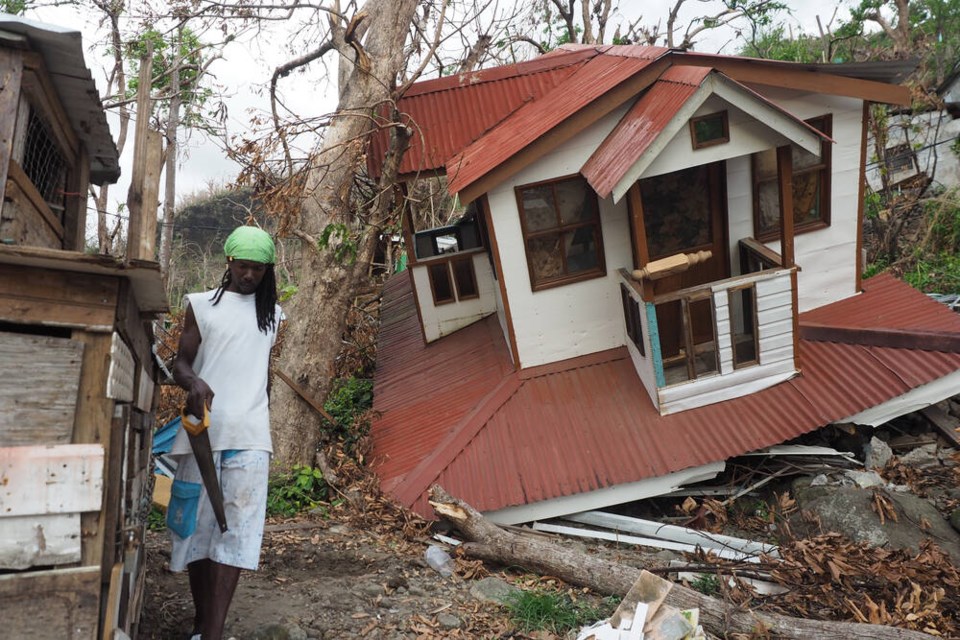As the climate crisis deepens, people displaced from rising seas and extreme weather urgently need legal protection, a new study has found.
Since 2008, weather-related hazards have forced more than 21 million people from their homes every year around the world — equivalent to 41 people a minute, according to a report from the Environmental Justice Foundation (EJF). Most of those displaced come from countries where relatively low incomes make adjusting to a shifting climate especially difficult.
“People are losing their homes and lives to global heating today, not at some unquantified time in the future,” said EJF founder and CEO Steve Trent in a written statement.
The report, , surveys international migrant flows from places like Central America and Somalia, but also the internal displacement of Indian farmers forced into cities and people left without a home due to wildfire in California.
While not included in the study, Canada faces similar pressures. The Village of , B.C., burned to the ground in June after an unprecedented heat wave, and outdated national flood maps mean at least 500,000 people across the country could face extreme risks as climate change leads to rising rivers and shorelines.
At an international level, over 400 lawyers, academics and law students from the Canadian Association of Refugee Lawyers are calling on the Canadian government to find for climate migrants looking to call Canada home, Glacier Media recently reported.
But unlike the Canadian proposal, the ECJ report is calling for countries around the world to create a new international legal regime that protects “climate refugees” and is separate from current refugee law.
Some countries have signalled they’re ready to accept environmental pressures as a legal pathway to migration. In January, a Bangladeshi man avoided deportation in France after he argued his health would severely decline if he were sent home to face dangerous levels of air pollution.
Stefan Labbé is a solutions journalist. That means he covers how people are responding to problems linked to climate change — from housing to energy and everything in between. Have a story idea? Get in touch. Email [email protected].



